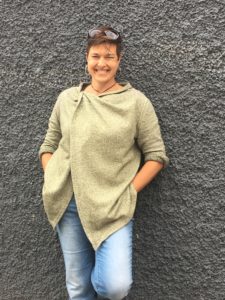
Press Materials:
Write to Restore Book One-Sheet
Writing Ourselves Whole Book One-Sheet
Writing Ourselves Whole Press Release
Writing Ourselves Whole Cover Image
“Jen Cross is a writing teacher with a difference: She specializes in workshops for people who have endured trauma. Even survivors of sexual assault or abuse, she teaches, can use the creative process to become whole again, and use the power and insight of the writing process to re-write one’s own story–even one’s own sexuality. This is a powerful, beautiful, inspiring and truly compassionate book.”
from 13 Best Books About Writing (2/17/19)
Audio/Video links:
Video: Jen reading from Writing Ourselves Whole at VelRo at SFSU on Oct. 11, 2017
Audio: Jen in conversation with Lilycat on Lilycat On Stuff on October 8, 2017 (FCC Free Radio!)
Talk/Presentation/Workshop/Article topics can include (but are not limited to):
Writing Ourselves Whole: Changing our language can change how we understand and story our lives. To express our own story changes the world. If you are a survivor of trauma, writing is a way back into a strong relationship with your own creative genius, your own creative intuition, that wise and curious inner voice that we often become disconnected from during trauma. I envision a world transformed through writing, in which each of us who’ve experienced loss and/or trauma are encouraged to open our hearts through our pens, so that we might live in a community of deep expressiveness and self-love, where each individual reaches his and her most complete self. Yes, it’s true. Writing can take you to the things you never thought you’d do, shift you into someone you never believed yourself able to be.
Liberatory Uses of Erotic Writing: Can erotic writing liberate more than our libidos? Does greater comfort with sexual expression lead to greater agency in our communities? Many of us assume that the erotic is solely the province of the individual, and not a site of social change or communal liberation – but what happens when we all have wider access to and more comfort with erotic language and sexual expression? The full breadth of our erotic power can challenge what our society (both damning and provocative when it comes to personal expression and human relationships) teaches us about our sexuality. When we bring our longing into the light and find common ground with others, when we risk exposing that which we’ve been trained to be ashamed of, many of us step into a deeply empowered and more embodied self.
Embodied Words: Unveil your body’s stories: What are the stories that your body has to tell? Writing is itself an embodied and embodying process; still, many of us, for varying reasons, believe that we must write from our “rational minds” in order to write well. When we are disconnected from our sensory experiences, our bodies are without a storyteller, and the result can be writing that feels emotionally disconnected. When we allow ourselves to challenge the words we’ve been told we ought to use to story our bodies’ experiences (traumatic and otherwise), and feel our way into stories that are both more complicated and more true, we often find that we are able to live more fully in these bodies we struggle to adore.
